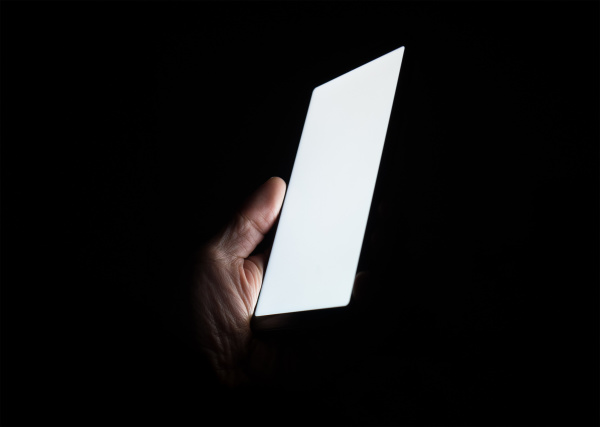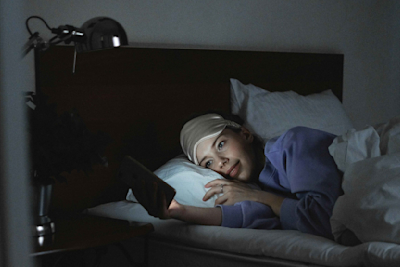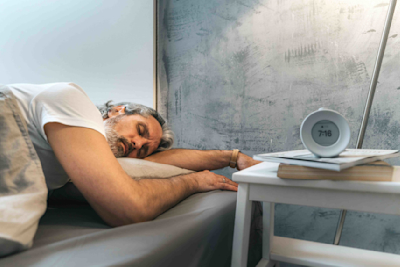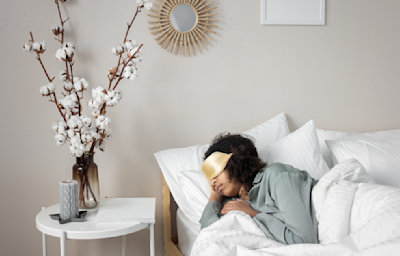
Is blue light bad for your eyes?
Blinded by the 'Blue' Light?
Scrolling through the memes in public transport on our smartphones, reading reports on our computers at work, watching movies on TV in our free time — most of us do that. You too, right? All those devices emit blue light. Is it bad for our eyes? Should we reduce our exposure? How to do it? We answer all those questions in this article.
Did your mother keep telling you that you should sit away from the TV, or otherwise you’ll go blind? Guess what — although you probably will not lose your sense of sight, there are several reasons why you shouldn’t spend so much time in front of your TV… or, for that matter, any device that emits blue light? Learn more about blue light and how it affects your eyes.
What is blue light?
Electromagnetic energy is present in our world in the form of various waves, for example, radio waves, microwaves, UV waves, etc. It has been leveraged by mankind for generations in electronic devices. Most electromagnetic waves are invisible, but some of them can be seen by humans as light.
Visible light waves vary in length from 380 nanometers (violet light) to 700 nanometers (red light).[1] Long waves transmit less energy than short ones and blue light is characterized by a very short wavelength, containing high energy charge. Waves of blue light are only a little longer and less powerful than ultraviolet (UV) waves. Blue light’s wavelength is between 415-455 nanometers.
When are we exposed to blue light?
Blue light surrounds us just as much as other colors. It is present in nature and in the devices manufactured by humans. We have always been exposed, but never before so much. We use computers, smartphones, tablets, television etc. Most of them emit blue light, as they rely on light-emitting diode (LED) technologies that use high amounts of blue light.
So yes, we are exposed. In fact, most of us keep sources of blue light next to our bed (or even on our pillow). Are there any side effects? Of course…
Nowadays, a vivid discussion has developed among health experts. Many claim that because blue light waves are almost as powerful as UV - which can damage our skin and eyes - they may also have a negative impact on our health. Should we reduce blue light exposure to a minimum?
How does blue light affect our eyes?
High-intensity blue light is potentially hazardous to the eyes, regardless of the source. It is unlikely that you will go blind only because of the blue light exposure from your electronic devices. There is a chance, though, that the blue light will influence you in some other way. Blue light may cause you to feel tired and have some difficulties sleeping. After many hours of using electronic devices, your eyes may feel dry, and you can feel considerable discomfort.
Studies have shown that blue light can cause some eye conditions after all. Even though experts state that blue light affects the function of the eye through photochemical damage only above the threshold, they also suggest not to underestimate blue light's influence on the health of particular groups of people, for example, dentists. They use high-power LED irradiation tools daily for many hours a day, each day. They should wear protective goggles to prevent blue light hazards. Blue light affects mostly the retina and ocular surface.
How to take care of your eyes and limit the blue light exposure?
Do you think you are in the high-risk group? There are still several things you can do to protect your eyes from blue light exposure, even if you deal with tools using LED technology and powerful blue light.
Give your eyes a break
Don’t sit too close to the screen of your computer, and don’t hold your smartphone or tablet extremely close to your face. Keep the right distance. Short and long breaks are required for those who work under high exposure to blue light for long hours. When you work with electronic devices that emit blue light, take a short break every 20-30 minutes, if only for 20-60 seconds. Step away from the device, find some object that is around 20 feet (ca. 6 m) away from you. Focus your sight on this object for those 20-60 seconds before you get back to work.
Remove devices which emit blue light from the places you use to rest
Artificial light shines on us through almost the entire day. You don’t agree? Many people spend their free time watching TV, playing computer games, or surfing the web. Sometimes, at work, we eat lunch sitting next to the desk and computer. When we are going to sleep, we keep our phones close to the bed (or even under the pillow) to not miss the morning alarm. We don’t even turn off notifications, so every time we receive a message, the screen of our phone lights up.
We can reduce part of the exposure, but turning off or removing devices that emit blue light from the places where we rest. “But what about waking up to work the next day?” — you may ask. Well, there are those old-school methods of waking up in the morning. You can leave your phone in the office or the living room and put a classic alarm clock, like Mudita Harmony, on your bedside table. Consider also using a classic watch instead of a smartphone after work to check the time without exposing yourself to additional blue light.
Keep your eyes moist
If your eyes get dry easily, you need to rest. Remember, having contact lenses put on a dry eye may cause minor injuries! If you have problems with your eyes from time to time, consider using eye drops. Consult with your physician and ask for the right ones to protect your eyes from drying. Also, if you work with your contact lenses on, consider switching to glasses from time to time. It will help your eyes regenerate.
Use proper glasses
Don’t buy glasses based on anything else but your instinct. You should consult with a doctor and optician, who will suggest the best solutions for your situation. Working long hours in front of a computer is not good for your eyes. Always work with your glasses on, if you need one. Remember to examine your vision from time to time, to learn if you wear the right glasses. You can buy special computer glasses with lenses designed to prevent your eyes from feeling dry and help your eyes relax.
Adjust screens of your devices
Many people make their screens as bright as possible. It is not a good choice. Some devices, like e-book readers, are created using technologies that are not as harmful to your eyes, so they do not hurt your eyes as much. You can adjust the light intensity of many of your devices such as a computer, tablet, or smartphone. Choose the “night” or “dark” settings with warmer tones. It is possible to reduce blue light exposure by using blue-light-filtering screens for work. It will help you protect your eyes when you are working late.
To sum up...
Protecting your eyes is important. Reducing blue light exposure will improve your health and mood in other ways, too. The blue light affects your circadian rhythm and sleep cycle. Light from a smartphone and other devices wakes you up. It also influences such hormones as melatonin - in particular, the rate at which it is released into your body. Long-term weariness caused by blue light exposure and problems with sleep may affect your mood and general wellbeing.
Replacing some smart, electronic devices with minimalist ones might significantly decrease your stress level and help you rest more efficiently. You will have more energy, won’t get headaches, and will not be distracted by constant notifications and blue light from your devices.
If you’d like to read more about topics connected to this subject, please check out some of our other articles posted on our blog:
You might also like to join our FORUM Community where we discuss ideas and exchange information about all things connected to wellness and overall health & well-being.
Related stories

Why You Can’t Sleep (And What to Do About It)
Struggling with sleepless nights? Discover what's keeping you awake & learn practical solutions from Mudita to improve your sleep quality.

How to Sleep Better as You Get Older
Transform your sleep quality as you age with science-backed strategies. Learn natural solutions for better rest and create the perfect bedtime environment.

The Sleep Hygiene Checklist for a Restful and Rejuvenating Year
Improve your sleep quality with a sleep hygiene checklist! Discover tips for better sleep, a healthy bedtime routine & how Mudita alarm clocks can help.
If you'd like to receive the best stories from our blog, keep up to date with our progress and get notified about our product releases and special discounts.